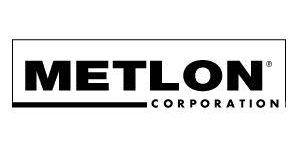|
|
| Why more executive housekeepers are choosing apparel programs made from recycled polyester.
F The same can be said for apparel. While there are many “sustainable” apparel options being marketed, some are better for our environment than others. One such fabric is recycled polyester. Of course, for many housekeepers, the word “polyester” has negative connotations. Some of the phrases that come to mind are “uncomfortable,” “doesn’t breathe” and “unstylish.” However, like any technology, polyester has seen the dawn of a new day. It has been reinvented. Today’s polyester is comfortable, breathable, machine washable and, yes, sometimes earth friendly. As a result, many executive housekeepers are selecting apparel made from recycled polyester for their uniform programs. What is Recycled Polyester?
In the first step of the process, plastic bottles are collected from the waste stream of products headed into the landfill. In the U.S., it is estimated that Americans throw away more than 2.5 million plastic bottles every hour. Once the bottles are collected, they are placed into a large shredder that breaks them down into small flakes. These flakes are rolled into pellets which are then spun into a fiber. A recycled polyester yarn is pulled from the fiber and then woven into the fabric. In 2008, Wyndham Hotels and Resorts rolled out its green uniform program. Employees were required to begin wearing the new uniforms by the end of 2009. In a press release issued about the program, Wyndham described the suiting as being “fashionable” and “extremely comfortable.” “We tested the uniforms at several Wyndham hotels and found staff appreciated the comfort of the garments, but also the retail-inspired, upscale contemporary look,” said Wyndham president Peter Srebel. Other executive housekeepers who have tested the fabric agree. The hand of the fabric is not only lightweight but also soft with a silky texture. Savings Going green can pay big dividends for a hotel. According to a recent report published by the Green Hotels Association, “Companies with proactive environmental strategies have a 4 percent higher return on investment, 9 percent higher sales growth and 17 percent higher operating income growth than companies with poor environmental track records.”
Nicolette Dykstra is a merchandising manager for Cintas Corp., a leading provider of stylish and eco-friendly apparel solutions for hotels. For more information on recycled polyester apparel, go to www.cintas.com/green or www.docandamelia.com. |
| Above story first appeared in MADE TO MEASURE Magazine, Spring & Summer 2011 issue. All rights reserved. Photos appear by special permission. |
| UniformMarket, LLC 633 Skokie Rd., Suite 490 Northbrook, IL 60062 T: 224-406-8840 F: 224-406-8850 E: [email protected] |





 rom biodegradable amenities to eco-friendly cleaning chemicals, today’s executive housekeepers are inundated by a wall of green products marketed to them. While some products are made with environmentally friendly processes or sustainable components, others have just as much impact as a gas-guzzling sport utility vehicle. The one thing these products have in common is that they are all touted as being “green.”
rom biodegradable amenities to eco-friendly cleaning chemicals, today’s executive housekeepers are inundated by a wall of green products marketed to them. While some products are made with environmentally friendly processes or sustainable components, others have just as much impact as a gas-guzzling sport utility vehicle. The one thing these products have in common is that they are all touted as being “green.” To reduce the amount of raw materials used in the apparel manufacturing process, companies have started using recycled plastic bottles to develop recycled polyester fabrics. While turning plastic bottles into shirts might sound like something out of “Star Trek,” it’s becoming an increasingly popular program adopted throughout many industries, including hospitality. By limiting the amount of raw materials used to manufacture polyester, we limit the amount of PET developed and reduce the amount of carbon dioxide released into the atmosphere by as much as 47 percent.
To reduce the amount of raw materials used in the apparel manufacturing process, companies have started using recycled plastic bottles to develop recycled polyester fabrics. While turning plastic bottles into shirts might sound like something out of “Star Trek,” it’s becoming an increasingly popular program adopted throughout many industries, including hospitality. By limiting the amount of raw materials used to manufacture polyester, we limit the amount of PET developed and reduce the amount of carbon dioxide released into the atmosphere by as much as 47 percent. For many hoteliers, going green can also mean growing revenue. In a market with fierce competition for building guest loyalty, initiatives that go above and beyond conventional greening methods, such as not laundering towels and sheets on a daily basis, are rewarded. For example, some hotels are eliminating the use of toxic chemicals or pesticides in rooms, which has shown to improve a guest’s sleeping experience.
For many hoteliers, going green can also mean growing revenue. In a market with fierce competition for building guest loyalty, initiatives that go above and beyond conventional greening methods, such as not laundering towels and sheets on a daily basis, are rewarded. For example, some hotels are eliminating the use of toxic chemicals or pesticides in rooms, which has shown to improve a guest’s sleeping experience.







